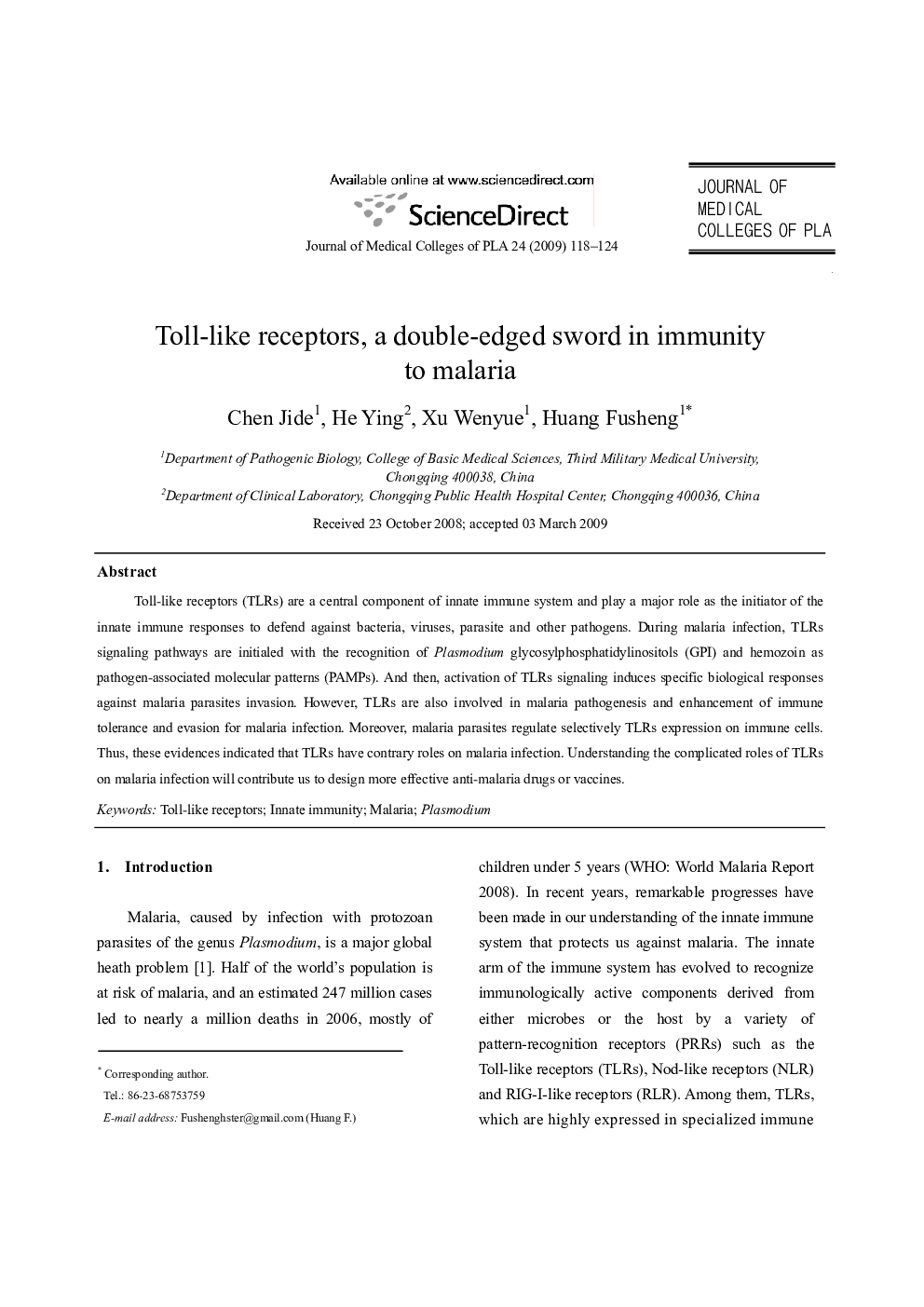| Article ID | Journal | Published Year | Pages | File Type |
|---|---|---|---|---|
| 3482760 | Journal of Medical Colleges of PLA | 2009 | 7 Pages |
Toll-like receptors (TLRs) are a central component of innate immune system and play a major role as the initiator of the innate immune responses to defend against bacteria, viruses, parasite and other pathogens. During malaria infection, TLRs signaling pathways are initialed with the recognition of Plasmodium glycosylphosphatidylinositols (GPI) and hemozoin as pathogen-associated molecular patterns (PAMPs). And then, activation of TLRs signaling induces specific biological responses against malaria parasites invasion. However, TLRs are also involved in malaria pathogenesis and enhancement of immune tolerance and evasion for malaria infection. Moreover, malaria parasites regulate selectively TLRs expression on immune cells. Thus, these evidences indicated that TLRs have contrary roles on malaria infection. Understanding the complicated roles of TLRs on malaria infection will contribute us to design more effective anti-malaria drugs or vaccines.
